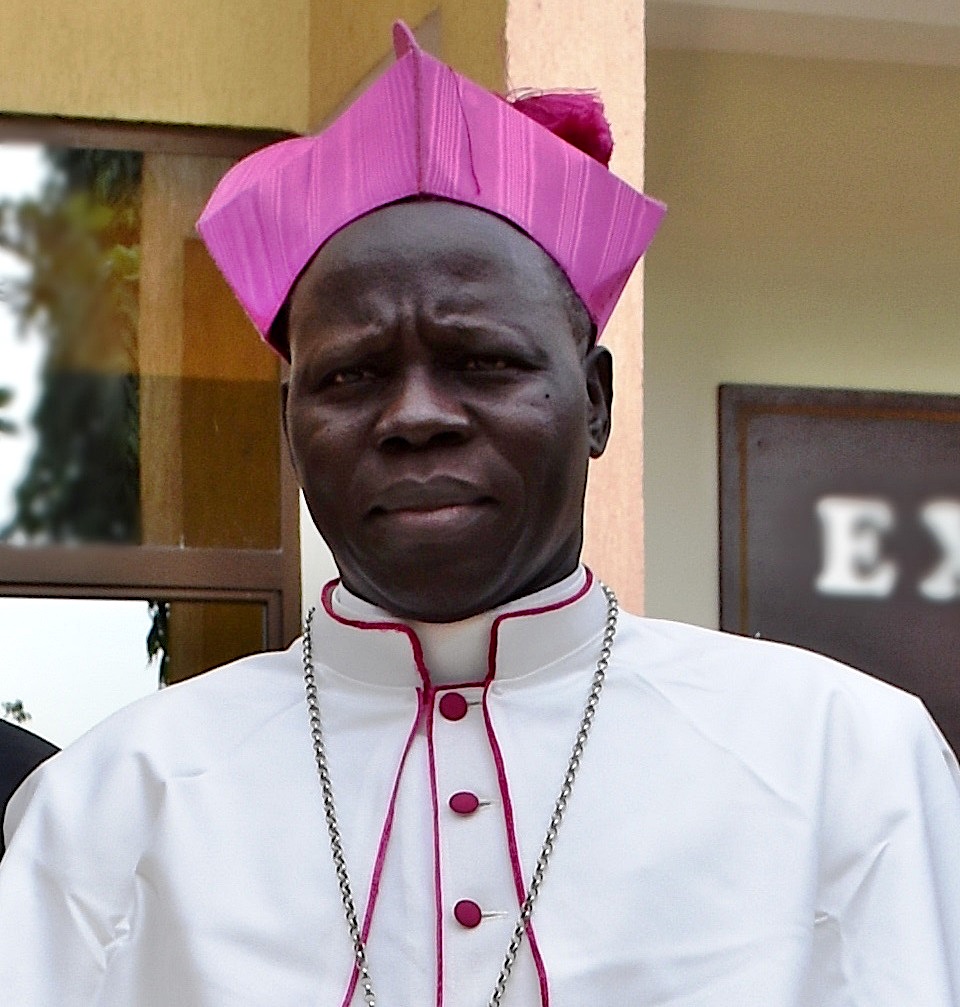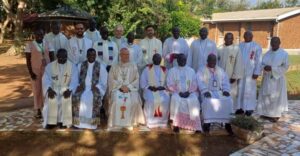SOUTH SUDAN: “Reconciliation The Only Remedy to This Broken Nation,” Archbishop Ameyu

Most Rev. Stephen Ameyu Martin Mulla,archbishop of Juba Archdiocese The recently installed archbishop of Juba Archdiocese Most Rev. Stephen Ameyu Martin Mulla has emphasized the need for reconciliation in the country that has been experiencing war for many years in his Easter message. “South Sudan is a broken nation. The families are broken. The ethnic communities are broken. Individual citizens are broken. This nation needs God's intervention, and reconciliation is the only answer to this brokenness, Archbishop
Sr. Jecinter Antoinette Okoth, FSSA
The recently installed archbishop of Juba Archdiocese Most Rev. Stephen Ameyu Martin Mulla has emphasized the need for reconciliation in the country that has been experiencing war for many years in his Easter message.
“South Sudan is a broken nation. The families are broken. The ethnic communities are broken. Individual citizens are broken. This nation needs God’s intervention, and reconciliation is the only answer to this brokenness, Archbishop Stephen Ameyu stated in his Easter message addressed to all faithful people of God.”
“Reconciliation is a gift of grace from God when we request our father. It is God’s initiative to save humanity,” Archbishop Ameyu added.
The Archbishop of Juba Archdiocese who continues to serves as Apostolic Administrator of Torit Diocese has reminded the faithful the need of interior disposition for reconciliation to be realized.
“To effect reconciliation in society requires an inner radical conversion of heart. Again, conversion of heart is an act of God in the hearts of people. Therefore, to have a conversion of heart, there is need for God in the hearts of men and women in this nation,” the Archbishop said.
“Unless the power of reconciliation is created in people’s hearts, spiritual and political commitment to justice, peace and truth cannot be realized,” and continued.
In a three-page Easter message, the Church leader recalls the genesis of the mayhem in the country which, according to him, has never been resolved for unity to prevail.
“Since the start of political turmoil in this country in 1955, there has never been any serious attempt at reconciling the people. Two brutal civil wars were fought; atrocities were committed; war crimes and crimes against humanity, rapes against women – all these crimes have never been addressed in any national nor international forum,” the Prelate recounted and appealed to leaders, “We need to seize this opportunity to reconcile our people.”
He added, “People of this nation are physically, psychologically and spiritually traumatized. The wounds of the last two civil wars have remained unhealed. The 15th December 2013, added salt to the festering wounds of the previous civil wars. I therefore, appeal to the government of National Unity; together with the all churches to begin this process of National healing.”
Identifying some African leaders who were icons of forgiveness and who should be emulated Archbishop Ameyu said, “I strongly exhort the people of South Sudan to learn to forgive and reconcile with one another from the past heroes and heroines, the sons and daughters of Africa, who excelled in forgiveness and reconciliation such as Mzee Jomo Kenyatta and Mr. Nelson Mandela who forgave and reconciled with their colonial masters after having undergone torture and unjust imprisonment for many years.”
In his message entitled “Be reconciled with God,” the Prelate suggested for the Church to set up a reconciliation commission to help facilitate healing process in the country.
“The Church calls for the establishment of an independent Truth and Reconciliation Commission, where every citizen will have an opportunity to talk the truth and only the truth, starting from 1955 to heal our community and individual trauma,” Most Rev. Ameyu said.
“Those found responsible for the tragedy in South Sudan will answer for it through confessing of their sins in public to the commission; so that they can be forgiven by their victims: that is the Church’s way of reconciling people to God and their brothers and sisters,” he added.
He further acknowledged the government for their leadership strategy saying, “I congratulate the leadership of the country, especially for the peace and courageous decision of reverting the country to ten States and for the formation of the government of National Unity and kindly request a speedy appointment of the State governors.”
Parting his Easter blessings to the faithful the Prelate concluded, “Easter is the feast of Reconciliation between God and man through the passion, death and resurrection (Paschal Mystery) of Christ. Through Christ, God forgave our sins and we became reconciled with Him.
Christ too reconciled us amongst ourselves when we accept the forgiveness and reconciliation of God. We turn to one another with God’s grace of love and forgive one another in reconciliation. Because God loves us in Christ, we therefore love one another and establish communion with God and with one another.”


